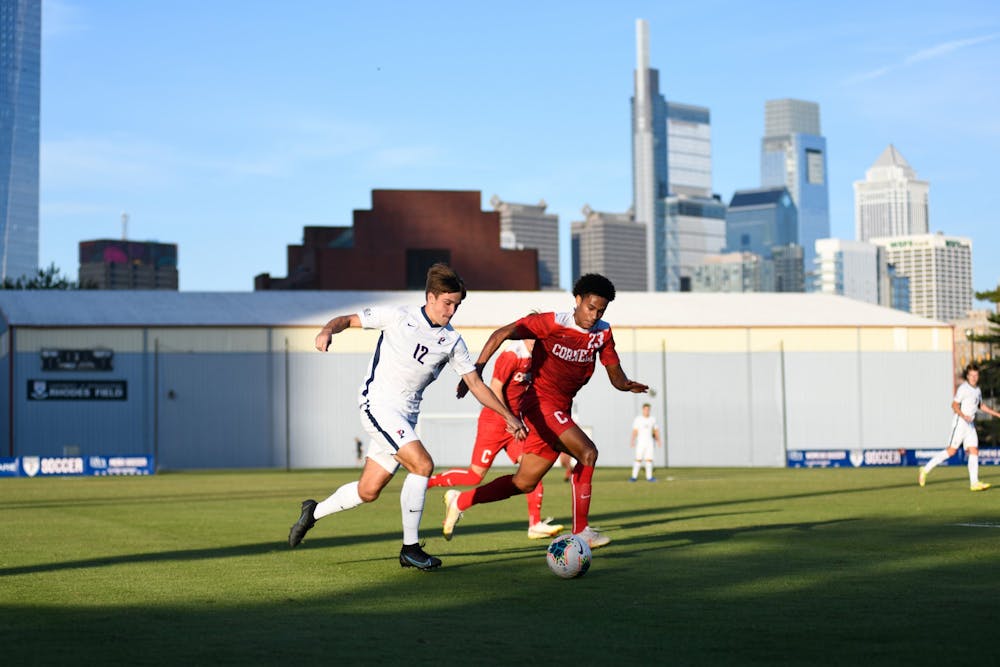
Now-sophomore forward Charlie Gaffney during the game against Cornell at Rhodes Field on Oct. 2, 2021.
Credit: Carol GaoNot all soccer games are created equal — that is, in terms of what makes up the playing field.
The differences between artificial and natural turf create quite the contrast in gameplay, and 2022 home Penn men's and women's soccer games have been affected by the variance between the two. With Rhodes Field — Penn's usual stomping grounds, which contain natural grass — out of commission for the next 23 months, both Quaker teams have transitioned to Penn Park, whose artificial turf is bound to create a significantly faster-paced game setting.
“The difference between surfaces matters a ton in college soccer,” Pat Squeo, assistant director of facilities at Penn, said. “Although the hops are always clean on turf, it is a much different game. Our coaches and teams especially prefer a natural grass surface.”
Players also generally prefer natural grass due to the potential injury severity of turf as well as the ability to make quick cuts and directional changes without getting stuck on the surface. However, passing and shooting ability are affected when playing on natural grass fields.
The types of soccer fields vary within the Ivy League, with each of the other seven members varying in the makeup of their respective pitches. Soccer games at Princeton, Cornell, and Dartmouth are all played on natural grass, while those at Columbia, Yale, Brown, and Harvard are all played on artificial turf, making the speed of the game significantly less at the former three schools.
Despite the numerous advantages that natural soccer fields have, they are nevertheless prone to challenges related to their overall maintenance. Natural grass fields are much more susceptible to weather damage than artificial ones, which can often lead to poor surface conditions and match cancellations.
The amount of playing time is reduced as well. Rhodes Field, for example, has Bermuda grass, which looks and plays well, but has a very strict schedule for maintenance. The grass is managed by Penn’s internal grounds staff, with help and applications done by Hummer Turfgrass Systems. Penn also has Boekholder and Associates as a consultant who provides the University with field work plans related to seeding, topdressing, mow height, and applications.
With the Penn men's and women's soccer seasons heating up, the challenges and benefits of playing on an artificial turf will soon become evident as the action unfolds.
The Daily Pennsylvanian is an independent, student-run newspaper. Please consider making a donation to support the coverage that shapes the University. Your generosity ensures a future of strong journalism at Penn.
Donate







